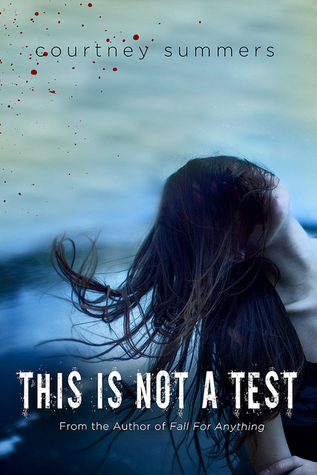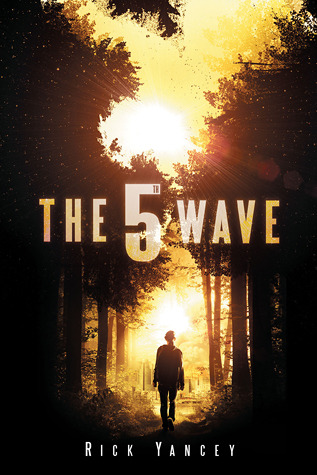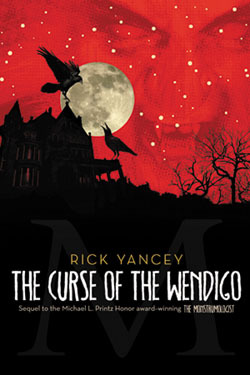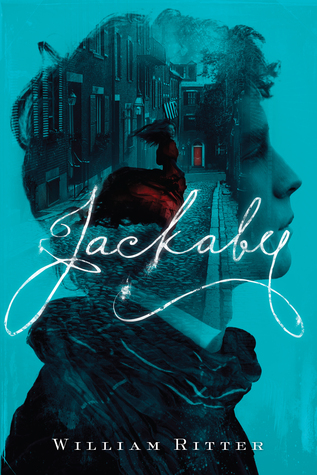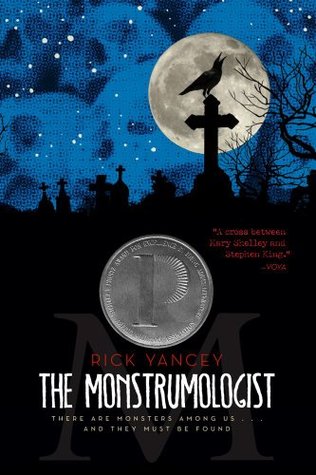My rating:
“These are the secrets I have kept. This is the trust I never betrayed.
But he is dead now and has been for more than forty years, the one who gave me his trust, the one for whom I kept these secrets.
The one who saved me … and the one who cursed me.”
When I first found about this book, I didn't quite want to read it. I was really hesitant to pick it up. I already had not-so-high expectations for it. I mean, monsters? I'm not usually attracted by that kind of things. They don't scare me, and I think they're for children. It didn't sound like the kind of book I might enjoy, but I'm glad I finally made up my mind and gave it a try.
I don't regret at all my decision. I love this book, and have loved it since... What is it? July 2014? See? A short time. This is the kind of thing this series provoke. It's perfect in its own way. In fact, it is
perfect for me.
I don't have a single complaint for it. The plot, character development, writing...
everything is done incredibly well.
So now I'm going to introduce you to the world of
The Monstrumologist...
Monstrumology is “the study of life forms generally malevolent to humans and not recognized by science as actual organisms, specifically those considered products of myth and folklore.” The book starts with Mr. Yancey talking to someone who has some papers for him. They belonged to a now dead man who called himself by the name William James Henry. So, the book is supposed to be the diary of this Will Henry, and Rick Yancey's role was as the editor of the book.
The book's setting is in late 19th century New Jerusalem (New England, Massachusetts), and we have Will Henry (at the moment a 12-year-old boy), the orphaned assistant to Dr. Pellinore Warthrop, the monstrumologist, as the narrator of the story. In this case, they are brought a nightmarish creature that feeds himself on humans –the
Anthropophagi– and they have to get rid of his pod before it is too late and something really bad happens.
The plot sounds too simple for what the book really is. I mean, intertwined with the hunt for the
Anthropophagi, there is some philosophizing about human nature (my Philosophy teacher would kill me for putting the words "human" and "nature" together) in the way, but it does not bore you; or at least, it does not bore
me. And also, there is a constant (yet not explicit in this first installment)
struggle between good/evil, man/monster, science/superstition, and that makes me love the book even more.
“We are very much like them: indiscriminate killers, ruled by drives little acknowledged and less understood, mindlessly territorial and murderously jealous - the only significant difference being that they have yet to master our expertise in hypocrisy, the gift of our superior intellect that enables us to slaughter one another in droves, more often than not under the auspices of an approving god!”
There is a question that is constantly analyzed throughout the book, and that one is:
When does man become the very thing he hunts? I know that at some time, you have to become what you do. For example, if you're a hunter, you have to know how the prey thinks so as to get hold of it...and in this case, if you're a monstrumologist, then I suppose you must be one of the monstrosities you claim to hunt in order to do a good job.
The character development in the book is done in such a good way that you could
almost feel them as real people. In fact, you
could feel them as real people, since Mr. Yancey, being he the “editor” of Will Henry's diary, said he wanted to know who this Will Henry was, and also, because at the beginning of the book, it is stated that Will Henry had just died –at the age of one-hundred and thirty-one years.
Will Henry, as I said before, is the 12-year-old narrator of the story. He's too young to be doing the kind of job he does with the doctor, yet he does it. He's brave, innocent and loyal. His bravery, also, is realistic, for me. I know no 12-year-old kid would be able to bear the things Will Henry bears, and
that makes him even braver. Besides, he's no fearless hero. He sometimes felt weakness inside him and sometimes fear got better of him, but that made him more realistic. He's now an old man writing down his memories, and we know his past was horrible and that he is doomed.
The doctor I mentioned before, Dr. Warthrop, is the other major character of the book. He's clever, serious, ice-cold, terribly egotistical, cruel, proud, easily exasperated, determined and cares for nothing but his work. He can spend many days and nights in his basement (laboratory) working in a case that has been brought to him, and he will not leave it unless his body cannot endure it anymore.
He's my favorite character in the book and the entire series. I even admire him and wanna be like him some day--err, I mean, I want to be in love with and determined to my job, just like him. Oh! And I almost forgot: He loves scones.
Jack Kearns (or whatever his name is) would be the perfect definition to what a dangerous man means. If I ever thought Warthrop was inhuman, then wait to know how this man is.
“There is no morality save the morality of the moment.”
Remember the question I said was analyzed throughout the series? Well,
this man is a perfect example of a man who is what he hunts. Within his charming smile and his silky blond curls, there is madness. He can throw a convincing lie without flinching, he can use a person as bait for the
Anthropophagi without remorse, he can humiliate and frighten the great Pellinore Warthrop, he delights in suffer, he doesn't fear death, etc.
It's implied that this man is the famous Jack the Ripper. If that doesn't prove he's mad, then I don't know what does.
One of the things I really liked throughout the series was the Will/Warthrop relationship. As stated before, Will was an orphan. His parents died in a fire, and therefore he had no one else in life, and so, Warthrop "adopts" him as his new assistant. Warthrop is also alone in life: He's not married, has no children and all his family is already dead. Will and Warthrop have just each other. Their relationship is like that of a father and a son, and I loved it. At some point in the novel, Will says he doesn't love the doctor, nonetheless, it's really obvious he does care for him. He's loyal to him and he's always trying to impress him.
As for Warthrop, he also loved Will... in his own way. He's uncapable of showing any emotion besides anger or hatred, but he cares anyway, because he's always trying to protect Will from the dangers they get into, and if something happens to him, he feels guilty and worried.
And the writing is simply mesmerizing. It is filled with many action-packed, fully-detailed scenes... but it is also similar to Mary Shelley's writing. This is perhaps what I admire the most in Rick Yancey's books. I've read two series by him until now, and they both have a marvelous writing. In this case, it's very dark, gothic and also poetical. His descriptions are pretty vivid and horrifying. It has a
big amount of blood and gore, which made the book
more enjoyable scarier. To add another praise for it, it fitted the time in which it was set.
“Our enemy is fear. Blinding, reason-killing fear. Fear consumes the truth and poisons all the evidence, leading us to false assumptions and irrational conclusions.”
Speaking about scary things...
Holy. Mother. Of. God. This book was completely
creepy. There were parts that made me feel uncomfortable while reading, and I was
never alone at the house. There were some parts that made me look around me just to make sure there was anything wrong in the house, and there were others that made me stand open-mouthed and blank-faced. It was so disturbingly horrifying. I wanted to hug myself tightly most of the time.
This brings me to my next point, that is,
why this book is tagged as YA. I don't say it is meant for adults because the hero is far too young and the theme might not call adult readers' attention, but the book is so
exceedingly violent and gory that I often wondered if it was really aimed for YA readers. It is obviously not for MG readers, for the previously stated fact that it is far too violent for them, yet the protagonist is the age of most MG's fiction protagonists.
However, it's not only the violence that makes me question this. This book is filled with vocabulary that not everyone is going to understand, for example, names of chemical compounds, parts of the body that you don't hear about in everyday life, words in latin or greek, references to classic figures, etc. Also,
it has no romance, which we know is ever-present in YA fiction. Well, I guess this question will remain unanswered and I will bring it to my grave still unanswered.
But the sad part about this series is that almost no one knows it.
The 5th Wave has been read by almost every person on Earth, but strangely enough, this book is, in the majority of the cases, not even known to Rick Yancey's readers. I guess my greatest hope is that this book gets some popularity one day.
Anyway, I'll stop here. I feel I've written a Bible, so I'll finish by saying that after this re-read,
The Monstrumologist is still my favorite series of all time. In my opinion,
it is where Rick Yancey shows us his best. If you're a fan of gothic horror, then this book might be just for you, but don't wait the entire series to be just blood, blood, blood, because it is more than that. This series starts as one thing and ends up being completely another.
So now, what are you waiting for? Go read it! And snap to!
“Yes, my dear child, monsters are real.”
View all my reviews

